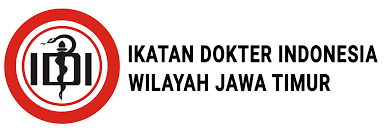KRAS Inhibition in Colorectal Cancer: Current Insights, Clinical Successes, and Ongoing Challenges
Keywords:
Adagrasib, Colorectal cancer treatment, KRAS G12C mutation, KRAS-targeted therapy, SotorasibAbstract
ABSTRACT
Introduction: Recent advancements in colorectal cancer (CRC) treatment have been significantly impacted by KRAS-targeted therapies, notably sotorasib and adagrasib, which specifically inhibit the KRAS G12C mutation. Despite these advancements, challenges persist, such as the rare occurrence of the KRAS G12C mutation in some tumors and complex resistance mechanisms. This review aims to assess recent developments in KRAS-targeted therapies, address ongoing challenges, and explore innovative strategies to improve treatment outcomes.
Material and Methods: The review examined recent studies on KRAS-targeted therapies, focusing on sotorasib and adagrasib’s efficacy and resistance mechanisms. It explored emerging strategies like immune checkpoint inhibitors, RAS-related pathway inhibitors, PROTACs, and CRISPR interventions, and assessed personalized, multidisciplinary approaches integrating surgery, chemotherapy, and tailored therapies.
Results: Sotorasib and adagrasib have demonstrated effectiveness in targeting KRAS G12C, although success varies with individual patient profiles. Resistance to these therapies often involves secondary mutations or activation of alternative pathways. Innovative strategies, including immune checkpoint inhibitors and PROTACs, hold promise for overcoming these resistance challenges. Personalized, multidisciplinary approaches that incorporate KRAS mutation profiles and tissue-specific characteristics are proving beneficial.
Conclusion: KRAS-targeted therapies, such as sotorasib and adagrasib, represent significant advancements in CRC treatment, though challenges like mutation rarity and resistance persist. Emerging strategies and personalized, multidisciplinary treatment plans offer hope for overcoming these obstacles and improving patient outcomes. Continued research and innovation are essential for addressing these challenges and enhancing treatment efficacy.
Downloads
Published
Issue
Section
License
Copyright (c) 2024 Furqan Memon, Momina Nadeem, Chernor Sulaiman Bah, Muhammad Sulaiman, Umm-E Hani, Ceaser Wankumbu Silumbwe, Muhammad Ali Amin Khan, Julius Mulumba, Jianjun Zou, Shengtao Yuan

This work is licensed under a Creative Commons Attribution 4.0 International License.







































